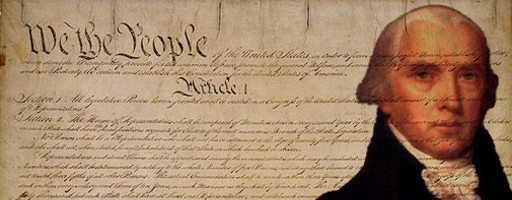The Constitution as an Expression of Individual Freedom

In his lionhearted defense of the Constitution, James Madison declared, “If men were angels, no government would be necessary…” (The Federalist No. 51) Madison argued that human nature and its tendencies toward the abuse of power demanded a tripartite constitution to restrain human governments. Yet the triumph of the American Constitution is greater than merely actualizing this Montesquieuan balance of power. Rather, the U.S. Constitution represents a revolution toward self-government. By its recognition of delegated powers, our Constitution not only protects individual freedoms, but expresses all political authority as derived from the cooperation of self-governing institutions. Today, in our time of political polarization, Americans must recover their founders’ constitutional hierarchy of authority. An inversion of the medieval hierarchy with the individual at its crest as the sole-grantor of powers for its servant: the constitutionally-restrained Federal government. Today, as communities fear overreach by the President, the Congress, and even the Judiciary – a return to the Constitution’s emphasis on self-government is the only remedy.
A discussion of individual freedoms would be amiss if it did not note that the British system, that the Constitution was formed in reaction to, was certainly mindful of individual freedoms. The colonial charters granted and protected by English Kings often afforded the North American settlers greater individual freedom than existed in England. Thus the colonial efforts for liberty were not simply a struggle against tyranny, but a reflection of a localist identity. The intercommunal commitments to one’s social, familial, and religious ideals were to be protected for their common good against the encroachments of a foreign parliament. This is in reaction to the English Parliament’s failure to transform their own power into decentralized individual freedom. In resisting the power of the depostic “divine right of kings,” Parliament had reserved for itself absolute power by a similar authority.
By contrast, our founders willed communities into existence and developed a Constitution to protect them as sacred jurisdictions. While it is common to discuss the Federal government as the centralized power, the Constitution reserves a greater authority for the nation’s constituent parts. After all, the States did not come to be as a result of Federal power, but the Federal government was created by the States. Cities, counties, and states have a role of oversight and interposition rather than subservience. A reality that is nearly foreign today as Federal institutions have continually usurped local authority by absorbing its institutions and developing dangerous financial entanglements. The vision of the Constitution is to maintain individual freedoms by the power of subsidiarity – that the contraction or expansion of individual freedom is related to their proximity to local government.
As we remember our Constitutional heritage, we must again take responsibility as a self-governing people. Federal petitions of “there ought to be a law” are to be replaced with a new imagination for how we might build up our own communities. The clamor for Federal dollars for every pet project ought to be replaced with pride in local control and autonomy. Protecting our individual freedoms today begins with protecting our local jurisdictions, the most cherished principle enshrined in our nation’s Constitution.



















